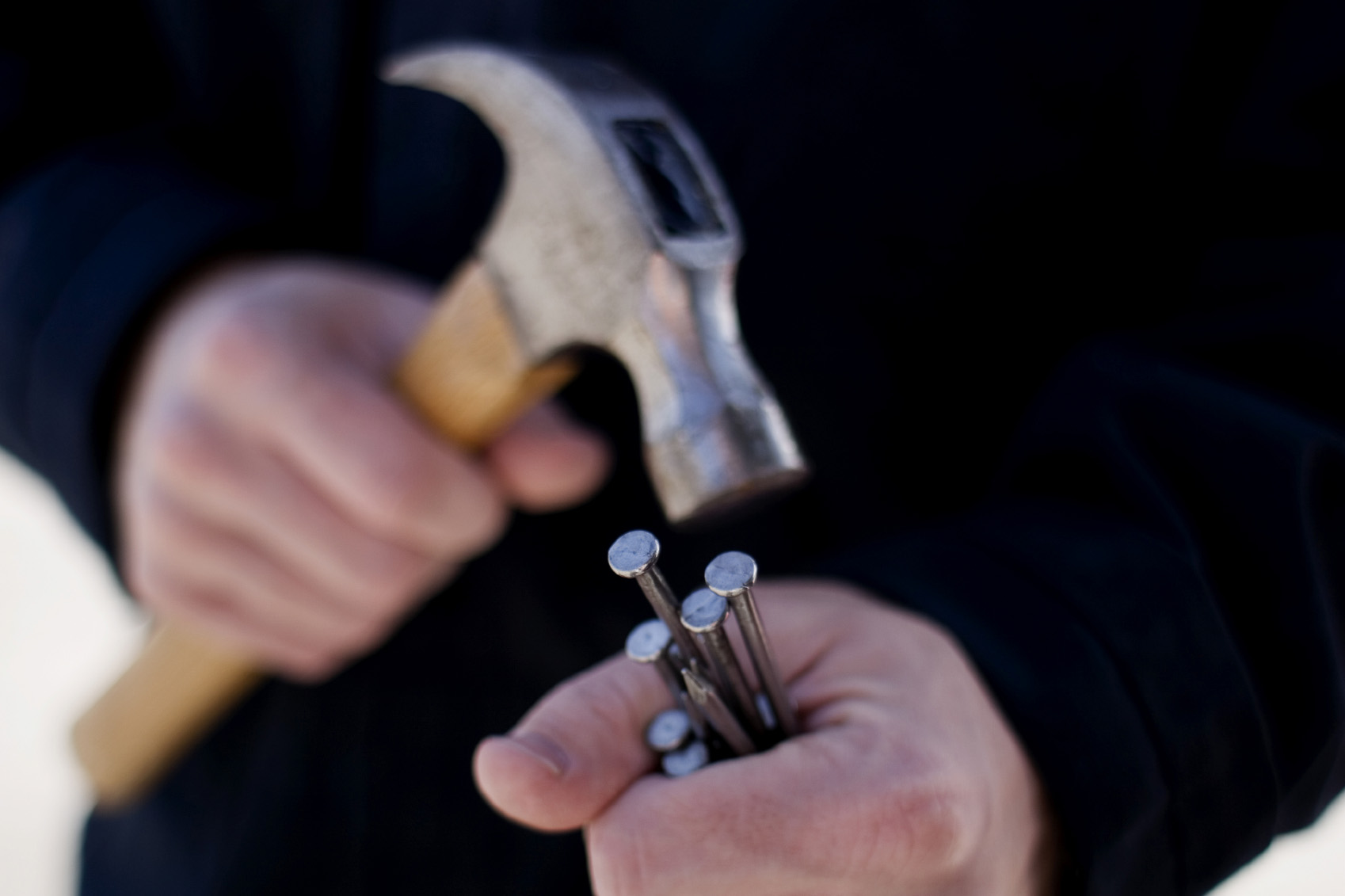

Nails literally hold the world together, but just how much do you know about your fasteners? Do you use the same nails for every job out of habit? Always ask your design professional to stipulate sizes and fastener patterns, but knowing what kind of nails to use may save you time and money on work that lasts.
The general guideline for nails is that you should use a nail three times as long as the thickness of the construction materials you are fastening. For example, if the drywall you are fastening to studs is ½” thick, use nails at least 1 ½” long. However, your design professional, engineer or architect must specify nail types and lengths on the plans as well as fastener patterns. If you are not sure you have the right nail for the job – ask the specifier. It’s cheaper to fix issues in the beginning of any project than at the end.
Sizing
Even when fasteners are specified by the design professional, it’s important to note that not all nails are created equally. Let’s start with size; nail lengths are measured in pennies which are represented by the letter ‘d’. They are as follows:
2d = 1 inch
3d = 1 1/4 inches
4d = 1 1/2 inches
5d = 1 3/4 inches
6d = 2 inches
7d = 2 1/4 inches
8d = 2 1/2 inches
9d = 2 3/4 inches
10d = 3 inches
12d = 3 1/4 inches
16d = 3 1/2 inches
20d = 4 inches
30d = 4 1/2 inches
40d = 5 inches
Nail sizes matter because they determine the amount of grip your fastener has. Using a 6d nail instead of an 8d will mean that you reduce the strength of the structure.
Shanks
The shanks of a nail will determine its gripping power. Smooth shank nails are the most common and offer sufficient grip for general use.
Ring shank nails have grooves around the shank that offer superior grip over smooth shank nails. They are utilized in softer woods where splitting is not a concern.
Annular thread also has rings around the shank, but these are externally beveled. The rings press against the wood to improve grip.
Screw shank nails have a helix shank that turns as it’s hammered in. This is for use in hard woods to prevent splitting and nail pops as nails are less likely to work their way out over time.
